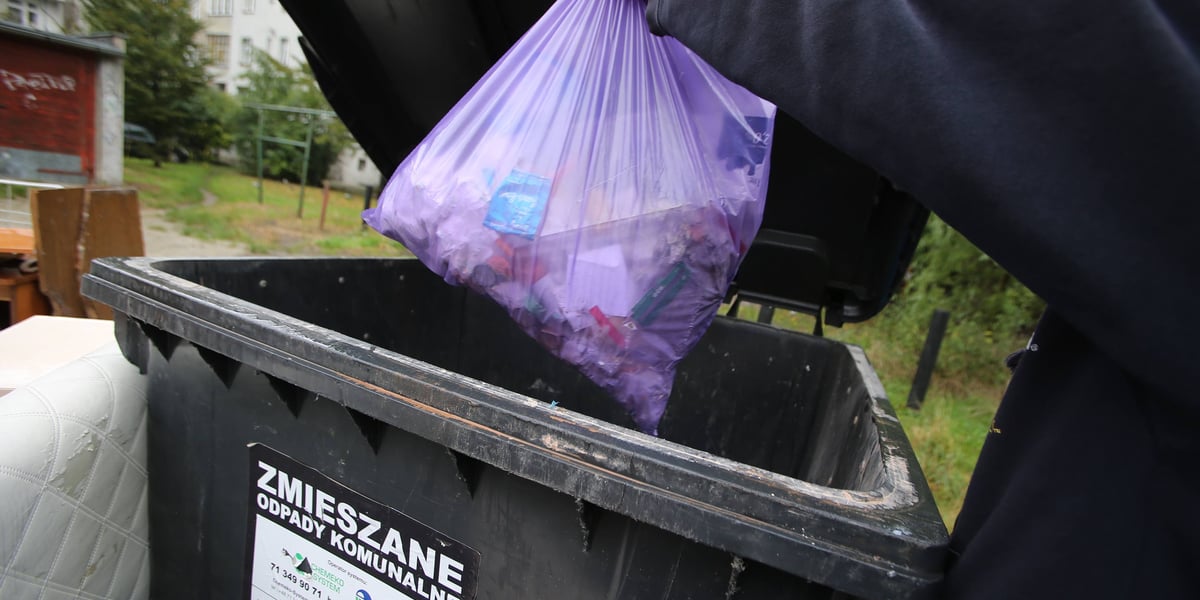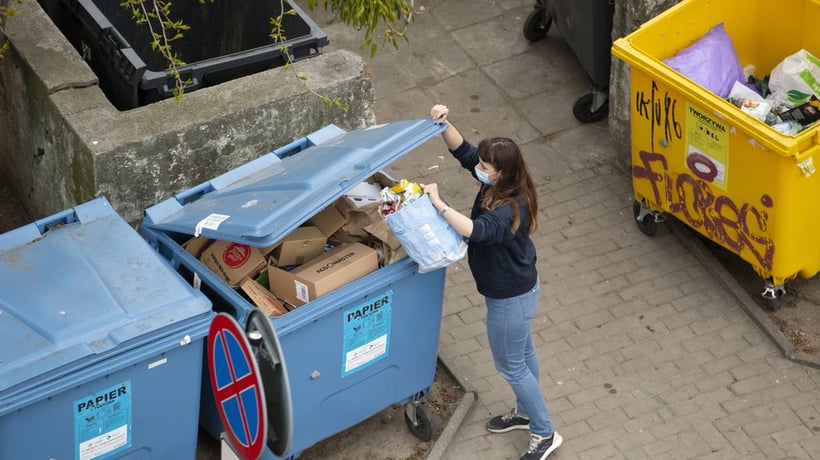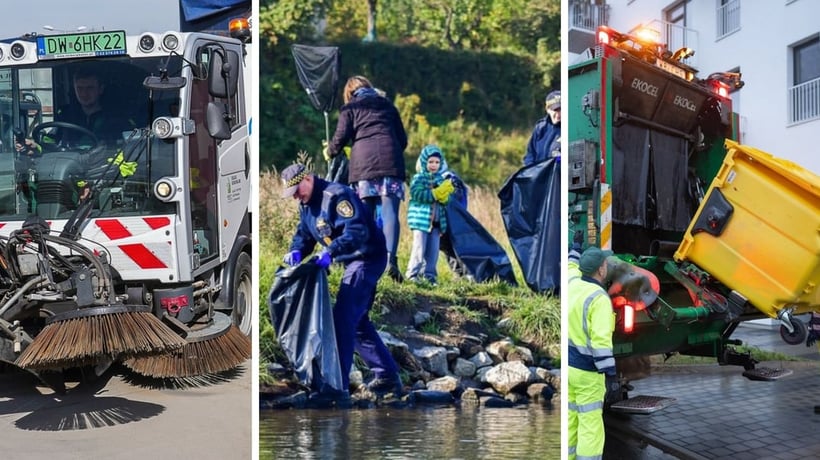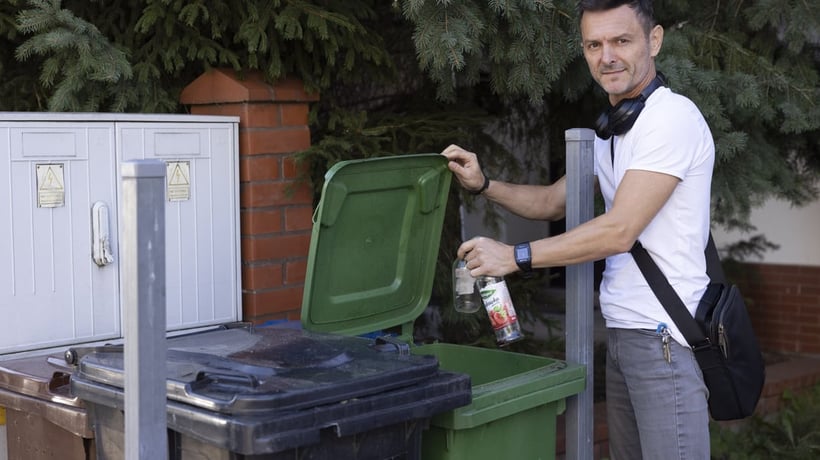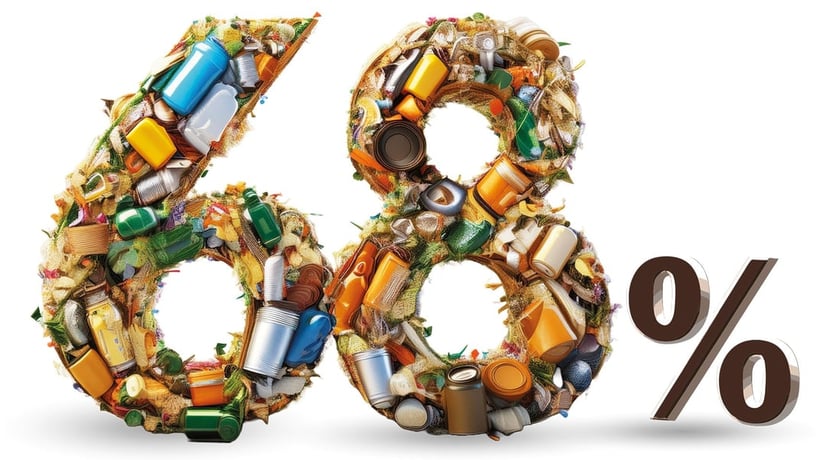According to our survey, people who do not care about waste segregation at all are very few – only 4%. Others sort rubbish accurately (almost 80%) or at least some waste (16%).
A majority of respondents (50–60%) do this for environmental reasons, such as care of the environment and the willingness to send waste for recycling. In some cases, the motivation is the fear of increased fees. Other motivating factors include the need to set a good example for children and the belief that waste segregation is a sensible and necessary activity in the long run.
And while half of the respondents are motivated by the belief that segregation makes sense, the other half (around 48%) are demotivated by the exact opposite – the feeling that segregation does not make sense. There were many justifications in our survey. Some residents, for example, believe that since they pay for rubbish collection, its segregation should be handled by someone else.
The magistrate's statement: Do we really pay much? The most in Europe? The most in Poland? Is it possible to declare that we will not sort?
There have also been claims that all separated rubbish is then mixed and re-segregated anyway: ‘all rubbish goes into the same dump truck’. This myth has been alive for a long time, despite the fact that all waste collection vehicles that drive around Wroclaw have a single chamber and collect only one fraction.
The lack of consequences towards people who do not separate waste (11% of votes) is demotivating. And this is changing. Waste collection companies will check if waste is segregated properly. If it turns out that we actually fail to do this, an orange sticker will appear on the container with the words 'Eko Alarm', which means we are in trouble – the information about the lack of segregation will be sent to the department of taxes and fees, where proceedings will start. As a result, the rubbish collection fee may increase significantly – fortunately only for those months in which the lack of segregation was ascertained.
The survey carried out by Ekosystem, a municipal waste collection company, shows that we find it most difficult to sort bio-waste. Among the aforementioned incorrectly sorted 68% of waste, compostable food remnants that should go into the bio-waste container account for 30%. In our survey, many people argue that collecting them at home is a nuisance and involves rotting, unpleasant smells and mouldy waste. Therefore, they prefer throwing them into the mixed waste bin.
Another problem identified by many Wroclaw residents is the lack of space in the flat: ‘How to fit five bins into 30 square metres?’ In further publications, we will show patents for unobtrusive home segregation.
The survey also shows that education is still needed because we do not know what to do with some waste. Here are your votes:
‘We use more and more electronic devices, and the segregation of such waste is difficult due to the lack of clear rules.’
‘I have no clear information on what to do with small electronic devices like phones, tablets, power supply units or cables.’
'The packaging of products should always contain information about the type of bin it should be put into.’
‘It would be easier if manufacturers did not use mixed packaging.’
"As for some packaging, I am still in doubt which type of waste it represents. For example, a juice/beverage carton that is not quite a carton, or a used deodorant container. It is a pressurised container, and I do not know if I can regard it as plastic.’
When asked about the ways of motivating others to segregate, the Wroclaw residents who are themselves convinced about the idea suggested education and social campaigns. Other tips included financial incentives or fines, the use of stickers with the code of each apartment and the monitoring of bin sheds. The respondents also pointed out the need to act on the part of manufacturers, including the promotion of returnable packaging.
The survey was not conducted as part of a professional survey with a representative sample. Responses were provided voluntarily by users of our portal. We received more than 600 responses mainly from people aged 35-44 and 65+, most of whom declared higher education.
Weronika Urbańska, Wroclaw University of Technology: I am alarmed by the fact that some residents still believe in myths such as the one about re-mixing segregated waste. This shows the importance of sound and wide-ranging education. We need to communicate clearly that every step of segregation matters and that waste segregated 'at source' is easier to recycle. The lack of space in apartments is a real problem, but here too, various waste bin manufacturers are coming to the rescue. An effective segregation system requires not only education but also enforcement. It is good to consider the introduction of more effective control and sanction mechanisms. It should be stressed that failure to separate waste is a recipe for even higher disposal fees and a reduced chance of reprocessing. To sum up, the survey results show that we are on the right track, but there is still a lot of work ahead of us. A combination of intensive education, practical solutions to facilitate segregation and effective enforcement will be crucial. Only such a comprehensive approach will allow us to really improve the efficiency of waste segregation in Wroclaw.
